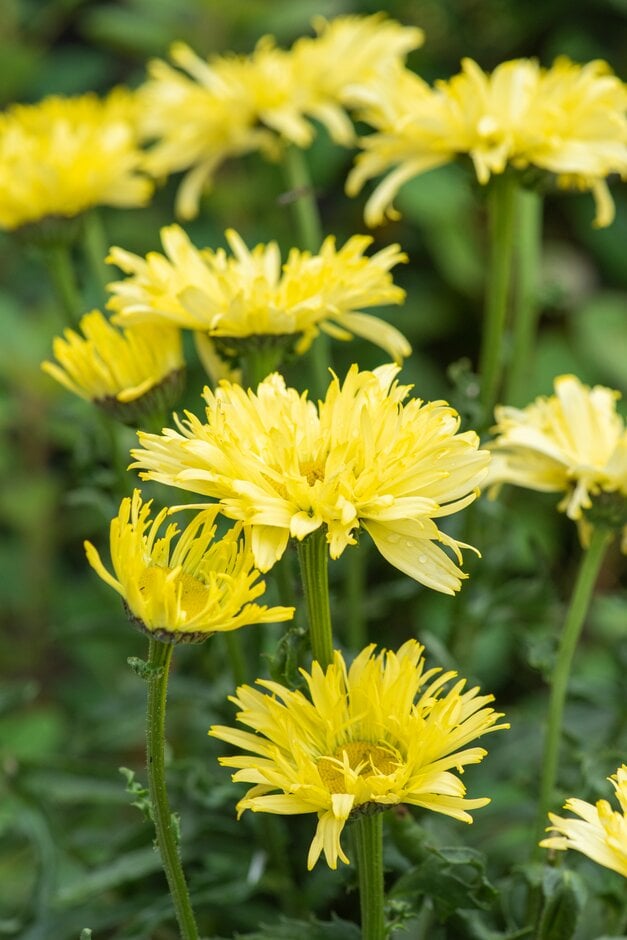Leucanthemum × superbum 'Goldfinch'PBR
A deciduous herbaceous perennial, producing clumps of stems to 60cm high and with a similar spread. The stems bear dark green oval to lance-shaped leaves with serrated margins. Large, lemon-yellow fading to white, semi-double, daisies, with ruffled petals are produced over a long period in summer at the tops of the stems

Buy this plant
Size
Ultimate height
0.1–0.5 metresTime to ultimate height
2–5 yearsUltimate spread
0.5–1 metresGrowing conditions
Moisture
Moist but well–drainedpH
Acid, Alkaline, NeutralColour & scent
| Stem | Flower | Foliage | Fruit | |
| Spring | Green | |||
|---|---|---|---|---|
| Summer | Yellow White | Green | ||
| Autumn | Green | |||
| Winter |
Position
- Full sun
- Partial shade
Aspect
South–facing or West–facing or East–facing
Exposure
Exposed or Sheltered Hardiness
H7Botanical details
- Family
- Asteraceae
- Native to GB / Ireland
- No
- Foliage
- Deciduous
- Habit
- Clump forming
- Potentially harmful
- May cause skin allergy after coming into physical contact with the plant
- Genus
Leucanthemum are robust herbaceous perennials with narrowly oblong leaves and daisy-like flower-heads with white rays
- Name status
Accepted
How to grow
Cultivation
Grows in any well-drained soil, in full sun or partial shade
Propagation
Propagate by division
Suggested planting locations and garden types
- City and courtyard gardens
- Cottage and informal garden
- Patio and container plants
- Wildlife gardens
- Cut flowers
- Flower borders and beds
Pruning
Cut back old, flowered stems to the ground in late summer and autumn
Pests
May be susceptible to aphids and leaf and bud eelworms
Diseases
Generally disease-free
Get involved
The RHS is the UK’s gardening charity, helping people and plants to grow - nurturing a healthier, happier world, one person and one plant at a time.